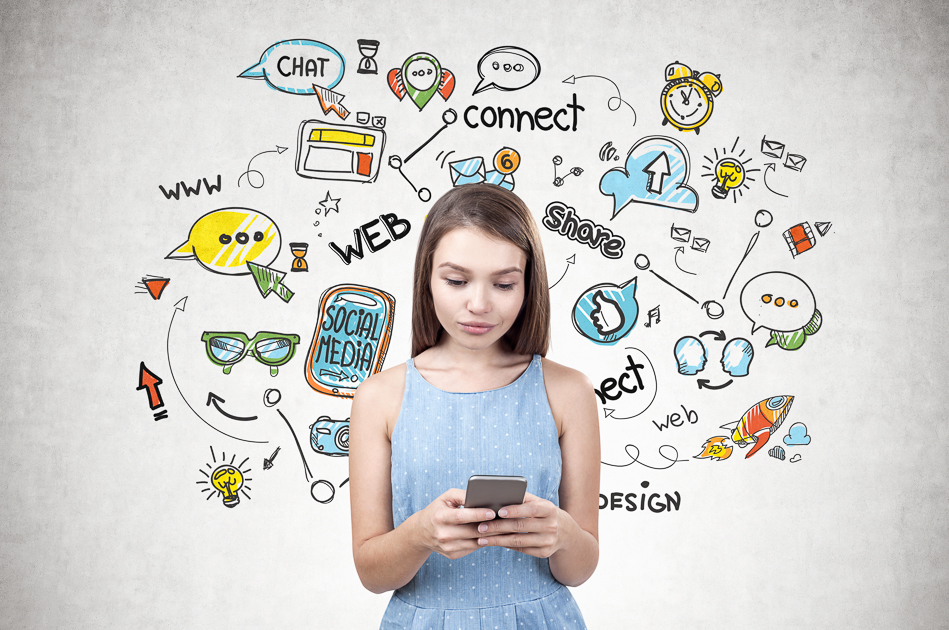Global AI in healthcare market expected to rise to $164B by 2030
The market size for 2023 was $10.31 billion
Read more... With nearly every person aged 13 to 17 now having a social media account, and growing evidence that these sites can have a negative effect on the mental health of young people, some states and institutions have started taking steps to combat the negative effects.
With nearly every person aged 13 to 17 now having a social media account, and growing evidence that these sites can have a negative effect on the mental health of young people, some states and institutions have started taking steps to combat the negative effects.
For example, earlier this year, Seattle Public Schools sued social media companies, including Meta, Facebook, Instagram, Alphabet, Google, YouTube, TikTok, and Snap, for creating "a youth mental health crisis," including an increase in anxiety, depression, thoughts of self-harm, and suicidal ideation. In April, Arkansas Governor Sarah Huckabee Sanders signed legislation requiring minors to get their parents’ permission to create a new account.
Now, United States Surgeon General Dr. Vivek Murthy is also making his voice heard as well, releasing a new Surgeon General’s Advisory on Social Media and Youth Mental Health on Tuesday, in which he urged policymakers, technology companies, researchers, families, and young people to do more to mitigate the potential harms of social media.
For example, he wrote that policy makers can strengthen protections to ensure greater safety
for children interacting with all social media platforms, which can including developing age-appropriate health and safety standards, requiring a higher standard of data privacy for children to, and supporting increased funding for future research on both the benefits and harms of social media use and other technology and digital media use for children, adolescents, and families.
Tech companies, meanwhile, can conduct transparent and independent assessments of the impact of social media products and services on children and adolescents, while also designing and evaluating platforms, products, and tools that foster safe and healthy online environments for young people.
Parents and caregivers an create a media plan, and also create tech free zones, while the young people themselves are encouraged to reach out for help, be cautious about what they share, and limit their online activities.
Finally, reearchers can establish the impact of social media on youth mental health as a research priority and develop a shared research agenda, while also developing and establishing standardized definitions and measures for social media and mental
health outcomes that are regularly evaluated.
According to the advisory, teens report using social media for 3.5 hours a day on average, with many spending more than seven hours a day on these platforms,
There is evidence that social media sites can have a negative effect on the mental health of young people, particularly those under 10 years old. The use of social media platforms, namely Instagram and Snapchat, was associated with more unsympathetic online behaviors, and greater likelihood of online harassment and sexual harassment victimization, compared to either tweens or teens.
The Surgeon General cites statistics showing that, when asked about the impact of social media on their body image, 46% of adolescents aged 13 to 17 said social media makes them feel worse, while only 14% said it makes them feel better. Additionally, 64% of adolescents are “often” or “sometimes” exposed to hate-based content through social media.
“The most common question parents ask me is, ‘is social media safe for my kids’. The answer is that we don't have enough evidence to say it's safe, and in fact, there is growing evidence that social media use is associated with harm to young people’s mental health,” Murthy said in a statement.
“Children are exposed to harmful content on social media, ranging from violent and sexual content, to bullying and harassment. And for too many children, social media use is compromising their sleep and valuable in-person time with family and friends. We are in the middle of a national youth mental health crisis, and I am concerned that social media is an important driver of that crisis – one that we must urgently address.”
(Image source: theoascenter.com)
The market size for 2023 was $10.31 billion
Read more...At Culture, Religion & Tech, take II in Miami on October 29, 2024
Read more...The company will use the funding to broaden the scope of its AI, including new administrative tasks
Read more...